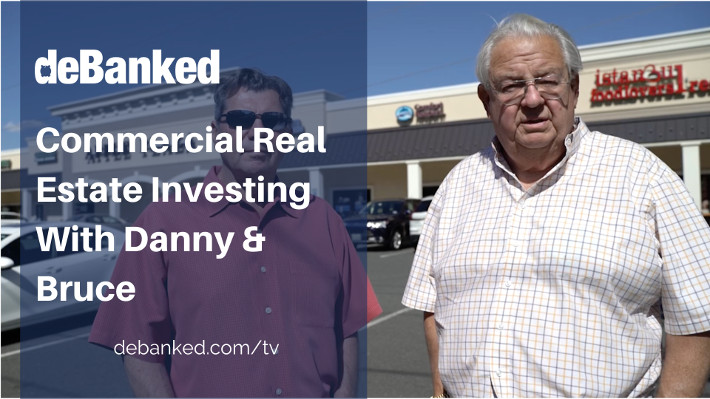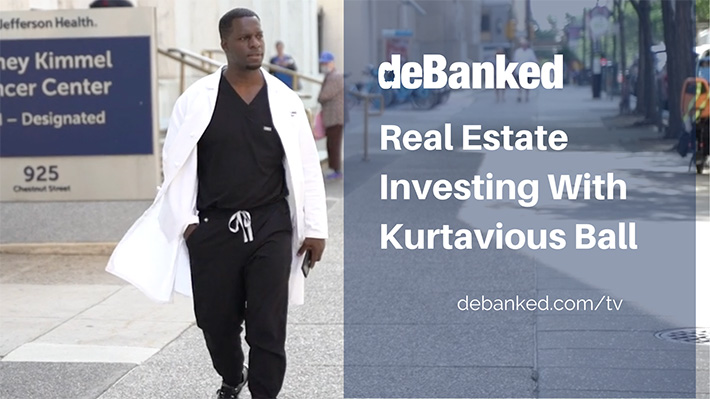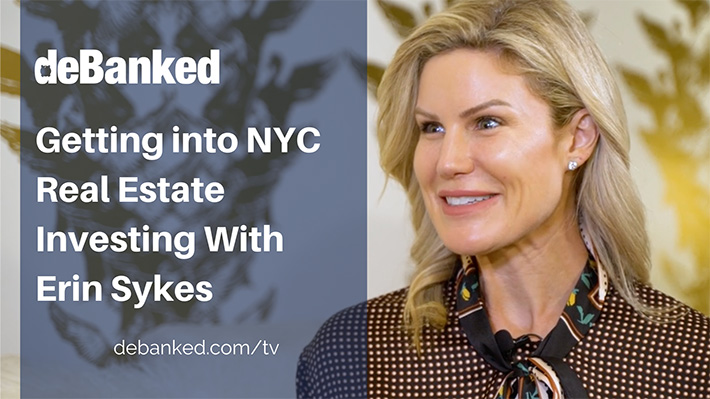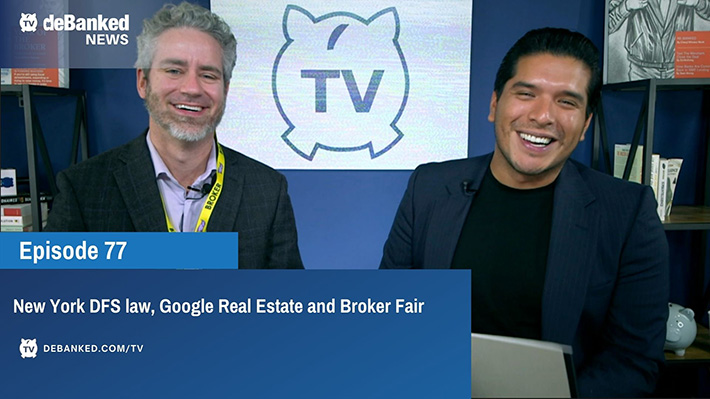Related Headlines
Related Videos
Commercial Real Estate Investing With Danny & Bruce | Real Estate Investing Tips With Kurtavious Ball |
NYC Real Estate Investing With Erin Sykes | New York DFS, Google Real Estate, and Broker Fair Ep 77 |
Stories
LoanGeek Launches LiveDeal: An Innovative Deal Portal for Commercial Real Estate Lenders
September 18, 2024RED BANK, N.J,, Sept. 18, 2024 — LoanGeek, a leading platform in commercial real estate financing, is excited to announce the launch of LiveDeal by LoanGeek, providing lenders with direct access to exclusive financing opportunities.
LiveDeal is designed to streamline the deal-sourcing process for lenders. It offers an intuitive, tech-forward solution that allows lenders to explore and evaluate potential deals in real-time. The platform is built for lenders, giving them the ability to filter deals based on key metrics such as loan type, loan amount, property type, and location. With the ability to view deal summaries at a glance, lenders can quickly assess opportunities and express interest in the ones that match their investment criteria.
“Our goal is to maximize deal exposure for our clients while providing lenders with a seamless experience,” said Chris Pepe, CEO of LoanGeek. “Traditionally, we’ve worked directly with lending partners to source financing. With the launch of LiveDeal, we are inviting lenders to be part of the process from the start, increasing efficiency and ensuring they have access to the best deals.”
Key features of LiveDeal by LoanGeek include:
- Advanced Deal Filtering: Lenders can filter deals by location, loan type, loan-to-value (LTV), and other metrics, enabling them to quickly find the most relevant opportunities.
- Instant Notifications: When lenders express interest in a deal, the LoanGeek team is immediately notified, ensuring quick follow-up and detailed discussions about the transaction.
- Real-Time Updates: LiveDeal offers live updates, so lenders are always working with the most current information on each deal.
LiveDeal by LoanGeek offers a significant step forward for lenders seeking efficiency in deal sourcing. It’s designed for lenders who want an efficient way to discover high-quality opportunities, making it the most effective platform for sourcing and evaluating deals in today’s competitive market.
About LoanGeek:
LoanGeek is a commercial real estate financing platform specializing in connecting real estate investors with capital providers. Serving the commercial real estate industry, LoanGeek’s platform streamlines the process for both lenders and borrowers.
For more information, visit www.loangeek.com
DailyFunder Adds Real Estate Lending Forum
September 7, 2024 DailyFunder, the largest online community of small business finance professionals in the US, has added a real estate lending subforum to its platform. The new category marks the first time any category has been added to the platform in more than a decade. Unsecured business lending and merchant cash advances have for a long time dominated the user content.
DailyFunder, the largest online community of small business finance professionals in the US, has added a real estate lending subforum to its platform. The new category marks the first time any category has been added to the platform in more than a decade. Unsecured business lending and merchant cash advances have for a long time dominated the user content.
According to the site, financing secured by real estate has experienced rising organic interest over time to the point where it warrants separation.
“It has become obvious over time that more and more real estate financing deals are being pitched in the Deal Bin so we have decided to make an entire category just for that,” the site said. “We can use this [new real estate lending] subforum for posting relevant deals or discussions. We have tried to move over a bunch of related posts so that they’re viewable in one place here but it’s hard to go through so many as this forum has racked up nearly 185,000 posts overall so we obviously didn’t hit them all.”
The category description says “Commercial, residential, hard money, mortgages, raw land, refis, cash out, construction, and all real estate lending” and it can be used to discuss the business or to post deals looking for lenders. It is completely free to use the DailyFunder forum. Users only need to register to post. Brokers and lenders rely on it every day. As of last public report, the site was garnering 2 million annual page views in 2021.
My Real Estate Was Turned into an NFT. I Used that NFT as Collateral for a Loan.
February 25, 2024 Ooops, I did it again. I bought an NFT that grants me ownership of real land in Arizona in the same manner that I previously bought land in California. But this time I went a step further, I used it as collateral for a loan.
Ooops, I did it again. I bought an NFT that grants me ownership of real land in Arizona in the same manner that I previously bought land in California. But this time I went a step further, I used it as collateral for a loan.
Thanks to a proptech company called Fabrica, the owner of a plot of undeveloped land in rural Sun Valley, AZ transferred the rights to a trust for which control is governed by whomever owns the corresponding NFT. Long story short I bought that NFT. The difference between this NFT and say some digital collectible flavor of the month is that the land has some actual value in the real world. It’s not dependent on the blockchain for its worth and I can go to Sun Valley and build something there if I wanted. But with ownership governed by the NFT, I can also do something that might be a little bit more difficult otherwise for this remote and somewhat illiquid property, and that’s access liquidity in a highly efficient marketplace.
Specifically, I offered this property up as collateral for a loan on NFTfi, a peer-to-peer NFT loan marketplace at a very modest LTV of 32%. My offer was filled and I was able to access the funds with a single click of a button. If I default on the loan, the NFTfi smart contract will transfer the NFT to the lender and with that the lender would become the legitimate owner of the property in Sun Valley. The stakes in this case are real.
If you’re thinking about what kind of person would ever want to make this kind of loan, consider that more than $400 million worth of NFT loans have already been conducted on NFTfi since inception. The most commonly used collateral is digital artwork like cryptopunks and Bored Ape Yacht Club, which collectively represent $164 million of that total volume alone. When borrowers use this digital artwork as collateral the lender may end up stuck with an NFT with no physical connection to the real world. For an entire niche audience of lenders, this doesn’t bother them. However, as someone with a more apprehensive view toward risk in lending, the introduction of real physical collateral, actual property in the United States no less, is a game changer.
I am not the first person to ever engage in this type of transaction. According to Fabrica, the first property-backed NFT loan was transacted in 2021. However, if I might be afforded any claim to fame it is for conducting the first ever domain name loan over Ethereum.
LoanGeek to Transform Commercial Real Estate Financing With The Launch of Exciting Platform in Summer 2023
May 5, 2023 New York, NY, May 5, 2023 – LoanGeek today officially announced that it is launching an online financing platform that connects real estate owners and investors to financing sources for all their real estate financing needs. The technology-driven solution, set to launch in the summer of 2023, is revolutionizing the commercial lending process through automation. Customers can submit basic information about their property and financing needs and will be matched with a lender that meets their criteria within minutes. Through strategic partnerships and a proprietary streamlined technology solution, LoanGeek ensures ease, efficiency, flexibility, and an elevated experience.
New York, NY, May 5, 2023 – LoanGeek today officially announced that it is launching an online financing platform that connects real estate owners and investors to financing sources for all their real estate financing needs. The technology-driven solution, set to launch in the summer of 2023, is revolutionizing the commercial lending process through automation. Customers can submit basic information about their property and financing needs and will be matched with a lender that meets their criteria within minutes. Through strategic partnerships and a proprietary streamlined technology solution, LoanGeek ensures ease, efficiency, flexibility, and an elevated experience.
“We are thrilled to announce the launch of LoanGeek to provide a valuable service and meet a need in the marketplace. Our platform is a one-stop shop for all your real estate financing needs. Whether you are a real estate investor in need of financing to acquire a new property, or looking to refinance an existing one, we have you covered. We expect the platform to be live later this summer but already have a waitlist of referral partnerships,” says Chris Pepe, CEO of LoanGeek.
A New Era for Financing on the Horizon
Under the guidance of a team with more than 20 years of experience in commercial and SMB lending, LoanGeek aims to make applying for a commercial loan and finding the right lender as simple and stress-free as possible. In the past, real estate investors and property owners typically went with whatever offer they received from one lender—unaware of other potential superior options—and this longstanding problem is what LoanGeek will solve.
In building its foundation, LoanGeek puts people, relationships, and transparency at the forefront. When a customer applies through LoanGeek, they can see all options available to help them make an informed decision. Whether a customer is looking for a 50,000 fix-and-flip project or a 200- million-dollar ground-up construction, LoanGeek can accommodate all these needs.
About LoanGeek
LoanGeek is an online financing platform that connects real estate owners with financing options. Through innovative technology, the platform simplifies the loan application process for customers and helps them find the best financing options for their properties. Based in New York, LoanGeek partners with various lenders to provide customers with competitive rates and terms. For more information, visit www.loangeek.com.
Private Lender Expo Shows The State of Real Estate Investing Industry
November 19, 2021 “We’re here because we’re looking to see if we can branch into real estate lending,” said Porsche Brooks, CEO of Brooks Partners Finance, a company that provides a suite of funding services that include both MCAs and SBA loans.
“We’re here because we’re looking to see if we can branch into real estate lending,” said Porsche Brooks, CEO of Brooks Partners Finance, a company that provides a suite of funding services that include both MCAs and SBA loans.
Brooks was one of many that attended the Private Lender Expo in Atlantic City on Thursday, where financiers, developers and more talked heavily about apartment complex and suburb-centric commercial real estate development.
“There are opportunities here,” said Brooks. “We’re really looking to expand.”
While there was evidence of fintech making its way through the space, companies providing document-digitizing software were hesitant to label themselves as fintech companies.
A representative from CoStar, a technology-centric real estate information company, called themselves “fintechy” but made it clear that they are only looking to function within the current space, not revolutionize it.
Those who hosted booths at the event showed little interest in expanding business operations into small business financing as a way to grow their lending options. As real estate investments continue to pay hefty dividends, lenders who focus on that area aren’t looking to dilute their effort into other ventures.
“Small business lending can be such a headache,” said one real estate investment company representative when asked if they would ever venture outside of their investment property exclusivity into funding merchants. “The amount of money in real estate right now is evident all around us. There’s always a lot of people at stuff like this that will give you a million dollars, but now this stuff is becoming all real estate.”
Real Estate Investing For Beginners and More
July 6, 2021deBanked met with Kurtavious Ball, a physician assistant and savvy real estate estate investor in Philadelphia. Ball started small, risking about $30,000 he had set aside for a startup venture. If it didn’t work out, Ball said he was still young enough and capitalized enough to weather the loss. After doing a lot of reading and listening to gurus, Ball said the best course of action was to just plow forward and give it a try. He’s happy he did.
deBanked’s interview with Ball is part of a nationwide docuseries with business finance and real estate professionals.
Real Estate Docuseries
All Docuseries
Merchant Cash Advance Tutorials
Why Funders Are Investing in Real Estate As Their Side Hustle of Choice
January 25, 2021
 After five years in finance, Peter Ribeiro decided to strike out on his own and start US Business Funding in 2008, providing equipment leasing and financing for businesses. But when the housing market collapsed four months later, Ribeiro saw a second major business opportunity emerge. Earlier that year, he had purchased a $250,000 home in southern California that appraised for $355,000 at the time he bought it. Within seven months, the home’s value plummeted to $95,000. “I told myself I knew the area really well, so I might as well start buying some properties.”
After five years in finance, Peter Ribeiro decided to strike out on his own and start US Business Funding in 2008, providing equipment leasing and financing for businesses. But when the housing market collapsed four months later, Ribeiro saw a second major business opportunity emerge. Earlier that year, he had purchased a $250,000 home in southern California that appraised for $355,000 at the time he bought it. Within seven months, the home’s value plummeted to $95,000. “I told myself I knew the area really well, so I might as well start buying some properties.”
At that point, Ribeiro’s fledgling company still wasn’t generating much revenue. “I thought, ‘Man, I just can’t get a lot of loans done right now. I only have three or four employees.’ That’s how I got into the real estate industry.” Twelve years later and at the height of a global pandemic, Ribeiro is simultaneously running two thriving ventures —US Business Funding, and a portfolio of hundreds of rental properties he now owns.
At a time when fintech startups and other industry innovators are looking for investors, alternative lending execs like Ribeiro are instead choosing to put their money in real estate to beef up their investment portfolios. Although some execs shy away from talking publicly about their real estate dealings, citing the fact that they don’t want too much exposure, the consensus is that there’s a lot of money to be made in buying, selling and renting property – if you know what you’re doing.
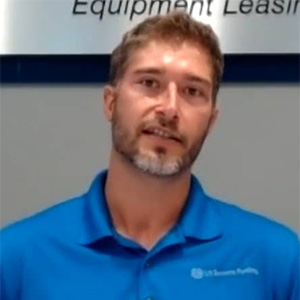 “I think real estate is lucrative because when you look at the history of investments, there are two or three ways to really make money: You can put your money in the stock market, or you can put it in bonds. And the other one guaranteed to go up in value is real estate,” Ribeiro says.
“I think real estate is lucrative because when you look at the history of investments, there are two or three ways to really make money: You can put your money in the stock market, or you can put it in bonds. And the other one guaranteed to go up in value is real estate,” Ribeiro says.
To Ribeiro, real estate offers a few major advantages: It’s a tangible asset. You can leverage it as it appreciates in value. Deductions make it so you pay very little in taxes. And it offers significant cash flow. “It’s the best investment you can make,” he says.
What makes real estate an especially good fit for alternative lending and fintech execs is that they possess the skills, resources and financial literacy to succeed at it.

“Real estate is a long-term gain,” Ribeiro says. “The industry we’re in is a cash-flow cow. People who are doing well are printing money. But what can you do with that money? You can put it in the stock market, but you won’t control much. Then you pay capital gains on it.”
 Attorney Paul Rianda, who represents both cash advance clients and real estate investors, says it makes sense that real estate investing appeals to alternative lenders – especially amidst the uncertainty of COVID-19.
Attorney Paul Rianda, who represents both cash advance clients and real estate investors, says it makes sense that real estate investing appeals to alternative lenders – especially amidst the uncertainty of COVID-19.
“If you’re a cash advance guy and COVID happened, then you’re not doing very well,” he says. “If you diversified your assets by doing real estate and cash advance, you’re able to weather these downturns a lot more easily than you would otherwise.”
Rianda has not yet counseled any of his own cash advance clients on real estate matters. But based on his insights from working with both areas, he says real estate would be a logical move for MCA executives, and he’s seen some of his clients in the bankcard industry buy up properties.
“One of my clients had a portfolio of merchants and sold it for a few million, then flipped over to real estate. So it’s a means (to an end),” Rianda says.
‘Snowball effect’
Ribeiro has relied on a simple strategy to steadily build his portfolio of residential properties: Buy. Fix. Leverage. Repeat.
“I feel like the portfolio is doubling every couple of years. It’s just a snowball effect,” he says.
After Ribeiro buys a home, he waits about six months before he has it appraised and fixes it up in the meantime.
“If you go to the bank within the first six months of purchasing it, they’re going to give you the actual market value of whatever you purchased the house for,” he says. “If you wait six months, they’ll reappraise the home and give its true market value, which could be another 40, 50 or 60 percent. And so now you’re going to have a lot more equity in the house, and you’re going to get a lot more money when you leverage that home to go buy the next one.”
Ribeiro says he sees lots of people making the mistake of buying a home, and then going to the bank a week or two later for a loan.
 Constantly maintaining a positive cash flow is Ribeiro’s number one rule of real estate investing. “Your best friend is depreciation,” he says.
Constantly maintaining a positive cash flow is Ribeiro’s number one rule of real estate investing. “Your best friend is depreciation,” he says.
Depreciation refers to one of the key tax benefits of real estate. Since owning a rental property is technically a type of business because it generates income, the property is considered a business asset. The IRS allows you to deduct the cost of acquiring that asset – the property – over the span of its useful life. For residential properties, the IRS sets a standard depreciation period of 27.5 years.
So if you buy a $100,000 property with a $20,000 land value, $80,000 of the asset is considered depreciable. Over the course of 27.5 years, you can take an annual deduction of just over $2,900 a year.
The trick, Ribeiro says, is to stick to lower-priced properties with an 80/20 home-to-land value. Most of his properties are single- and multifamily homes between southern California and Las Vegas.
Like Ribeiro, Rianda’s investor clients concentrate on one geographic area to find the best properties. “They look at the area for a long time, understand the area,” he says. “In my neighborhood, three blocks can make a 50 percent difference in the price of a house. You need to focus on a particular geographic area and do a lot of transactions in it.”
Small portfolio, big impact
 Real estate investing has provided a way for Jared Weitz to earn more money while being able to focus on his primary job as CEO of New York-based United Capital Source Inc., the company he founded.
Real estate investing has provided a way for Jared Weitz to earn more money while being able to focus on his primary job as CEO of New York-based United Capital Source Inc., the company he founded.
“For me, it’s just a really good second income stream and a way to have a secure return of 4.5% to 6.5% a year,” he says.
Growing up, Weitz got a feel for real estate by watching his uncles invest in multifamily properties. At one point, Weitz’s uncle owned 15 different multifamily homes, and Weitz would help do the maintenance on them.
Eight years ago, Weitz invested in his first two-family home and has fixed and flipped eight properties since then. He currently owns two two-family homes and invests primarily in multifamily homes in Long Island, Brooklyn and Queens. Over the next five years, he plans to pick up at least two more four- or eight-family properties. Working with a small portfolio of residences in his home state has allowed Weitz to have full control over managing his properties and to turn a good profit.
“I think for me, it just offers more liquidity,” he says. “It’s an asset I can sell and liquidate at any time. That’s really important for me.”
Ideally, Weitz would like for his investment to build generational wealth that he can pass down to his son. With many people in the U.S. unable to qualify for mortgages, Weitz sees real estate investing as an opportunity to help the economy by giving renters a place to live and put down roots. “Depending on the neighborhood, you can put yourself in a situation where you have good renters for 20 to 30 years. They want to raise their families and have their kids grow up there,” he says.
Litigation among the pitfalls
Even though Ribeiro has had success with his business model, he cautions that there’s considerable risk involved with real estate.
“I love the industry. It’s a passion. It’s beyond my wildest dreams of the size of the portfolio and how well it performs,” he says. “But don’t think it’s all cupcakes and unicorns. There’s a lot to the madness. That’s why not everyone can replicate the model.”
 “Professional litigators” and multiple lawsuits from renters are a major downfall that Ribeiro points to. He sees at least one substantial suit each year and tries to settle outside of court whenever possible.
“Professional litigators” and multiple lawsuits from renters are a major downfall that Ribeiro points to. He sees at least one substantial suit each year and tries to settle outside of court whenever possible.
As an attorney, Rianda says his real estate clients call on him not just for the purchase of the property, but for various issues that occur during the ownership period.
Here’s one scenario: A property owner has a tenant who isn’t paying rent, so the property owner sues the tenant. But while the lawsuit proceedings are under way, the tenant declares bankruptcy, which puts a stall on further litigation.
“There are people who understand the system and can make it difficult for you to get them out (of the property),” Rianda says, adding that it’s important to have legal counsel readily available. “You need someone who has really done this a lot and knows how the system works to get that person out of the rental property as quickly as possible.”
To minimize liability, Ribeiro has divided his properties into about 10 different business entities – each with a separate umbrella insurance policy.
Rianda sees his own real estate investor clients follow this strategy by grouping multiple homes under the name of an LLC. “If you personally own all these various assets, there’s the potential that if something catastrophic happened at one, it could bleed into all your other properties and potentially put them at risk,” he says.
Dual careers
Ribeiro’s real estate investments and finance company both serve as full-time occupations for him. Some years, he’ll focus more on one area than on the other, depending on market conditions. He spent more time on real estate between 2008 and 2013; then his business needs flip-flopped when real estate prices started going back up. This past year, he’s directed more attention to the finance company because of COVID, which necessitated some operational changes and a need to help clients who had been trying to get PPP loans. But he’s also started investing in commercial real estate, which has taken a hit because of companies forgoing office space to save overhead costs while employees work remotely.
Ribeiro expects to start seeing more mortgage defaults on lower-level homes in 2021 and 2022, after forbearance periods are over. And he’s been leveraging his assets to start buying more properties around the second quarter of the new year. “I think it will be a good time to start buying heavy again,” he says.
An attractive investment vehicle
With the pandemic weakening business portfolios, secondary investment options might sound like just what the doctor ordered.
 When COVID first hit, some of Rianda’s clients started pursuing other investments like personal protective equipment (PPE). Most of his cash advance clients closed up shop for a few months.
When COVID first hit, some of Rianda’s clients started pursuing other investments like personal protective equipment (PPE). Most of his cash advance clients closed up shop for a few months.
“As time goes on, I’m starting to see my clients go back into their lending,” Rianda says.
Even as clients start to recoup their business, Rianda sees the wisdom in other investments and says cash advance executives are well suited for real estate. “It’s just a way that people who have been successful and spin off a lot of cash for their businesses see as a safe way to diversify their income,” Rianda says. “It’s something I find that people who are doing well in their business do, regardless of what business they’re in. So cash advance guys are just following the things people have done for years.”
Ribeiro cautions that people who get into real estate should look at it as a 10-year investment minimum, and not just a two- or three-month stint.
“It’s not a lottery ticket, and it’s not an overnight race,” Ribeiro says. “This is a long-term gain. But it’s a very lucrative gain from a cash-flow perspective and a tax perspective. I don’t think there’s a more attractive vehicle than real estate.”
How Start-Up Founder Andrew Luong Went From House Flipper to Real Estate CEO
November 19, 2020 Andrew Luong said it all started seven years ago in San Francisco, just out of graduate school investing in real estate with his spare time on the weekends. Today, his startup Doorvest manages more than $20 million in real estate assets.
Andrew Luong said it all started seven years ago in San Francisco, just out of graduate school investing in real estate with his spare time on the weekends. Today, his startup Doorvest manages more than $20 million in real estate assets.
“I wanted to look for an avenue to put the money that I had earned from my day job to work,” Luong said. “The goal was to seek out some income security, build a long-term nest egg, hopefully, some passive income to support my life.”
That avenue turned out to be real estate. Luong thinks more people should have the option to invest in the estimated $3 trillion single-family renting market, now more than ever.
A second wave of infections is sweeping across the nation, and with shutdowns looming and business growth on hold, many face a familiar question:
What can I do to make more money?
Luong believes Doorvest has an answer. The firm offers what Luong calls a Democratized way to invest in real estate, entirely online.
Customers can invest up to $100,000 on the platform. Luong and his team of real estate flipping specialists buy, refurbish, and then rent properties, paying back the rent revenue to investors. Luong said Doorvest only gets paid when the properties are profitable, and the reported average annual return on investment is 18%.
The idea came about when Luong and co-founder Justin Kasad tried to find a better way to invest.
Like his peers back in San Francisco, Luong had tried his hand trading stocks. Many of his friends had Robinhood or high yield savings accounts, and were even trading cryptocurrency- but none of those options were what they were looking for. Real estate felt like that next step, but there was a large process to go from cash investment to payday:
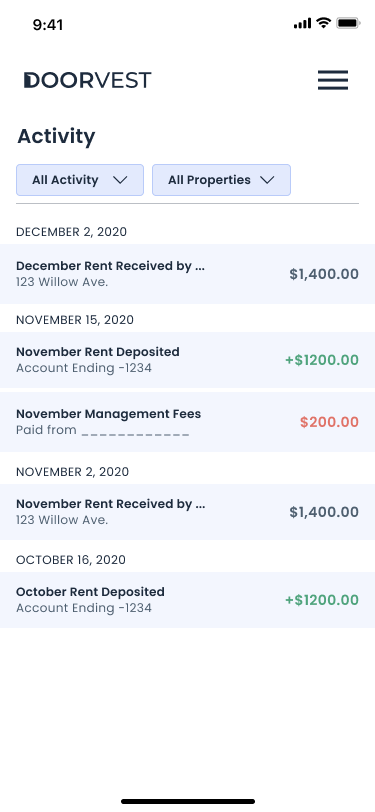 “From identifying a mortgage to underwriting, looking through offers, ultimately an offer that sticks, then you’re figuring out how to find a mortgage financing, how to get homeowner insurance,” Luong said. “Then you’re closing on this thing, take the title, and you’re figuring out how to lease it out, how to manage your residents, and then ultimately, maintenance and bookkeeping.”
“From identifying a mortgage to underwriting, looking through offers, ultimately an offer that sticks, then you’re figuring out how to find a mortgage financing, how to get homeowner insurance,” Luong said. “Then you’re closing on this thing, take the title, and you’re figuring out how to lease it out, how to manage your residents, and then ultimately, maintenance and bookkeeping.”
With a long, dizzying list of steps, all with uncertain outcomes, it is no wonder a lot of people are put off by that risk, Luong said.
“When my good friend and co-founder Justin and I went through that long list of items, it dawned upon us that if we could deconstruct real estate investing and rebuild it in an online frictionless way, we could bring it to the masses,” Luong said. “We see real estate as a vehicle to funnel people toward financial security.”
The pair got a group of experienced real estate investors and partnered with mortgage providers and renovators to build a platform to handle all of the steps it takes to turn cash into rent income returns. Doorvest will run every step of the process, including property management, while updating investors at every step of the way.
The firm currently focuses on the Houston rental market, Luong’s long term bread-and-butter area, but plans on renting in other markets in the future.
The platform has been in the works for years, but finally launched last year and immediately had to deal with the pandemic, but Luong said Doorvest made it through so far with success.
“It was definitely an experience, back in mid-march Justin and I were like crap, I think we’re done,” Luong said. “Public equities markets were tanking; we’re a young company without a lot of cash. I think people saw the volatility of the public equities market. In that span of two weeks it went down 40% or so and I think that led a retreat towards perceived reliable asset classes.”
To some, investing in Doorvest was perceived as more reliable than a tanking stock market, and after initial fluctuation, the firm is on the up. In his experience, Luong said the real estate market would continue to push toward suburban areas outside of major city centers as the pandemic continues.
All the while, everything is moving digital. As the company evolves, Luong is excited to offer new products to customers, using real estate as a vehicle to build a banking platform or mortgage platform to service a growing smorgasbord of online real estate options.
“We as a company made a bet three to five years out: we believe that real estate will be transacted entirely online,” Luong said. “Historically, you’d show up at a house, walk around, etc. Due to COVID, people weren’t going out, weren’t shaking hands: The adoption of technology to look at a home entirely online just became a lot more natural. Because of that, we’ve had really strong customer demand and fundraising.”

See Post... real estate investor with the following info: , , - looking for multiple rental property loans ($300k-$500k each) , - interest 3-5%, - zero/low pre-payment penalties, - 750+ credit score, - 75+ re... |
Rental loan portfolio lender needed! $500k loan amounts... real estate investor with the following info: , , - looking for multiple rental property loans ($300k-$500k each) , - interest 3-5%, - zero/low pre-payment penalties, - 750+ credit score, - 75+ re... |
Zach's Cold Call Basics - Breaking It Down III... real estate required, line of credit or loan with interest rates possibly as low as 4.8% for qualified candidates.* and the funds can be in your account in less than just one day.* do you think this type of financing can help grow your company?, , *, , why do you think this pitch is that much more effective at converting?, , *, , -fundingstrategist, , https://fundingstrat.com, , https://fundingstrat.com/zachs-cold-call-basics-breaking-it-down-iii/... |


